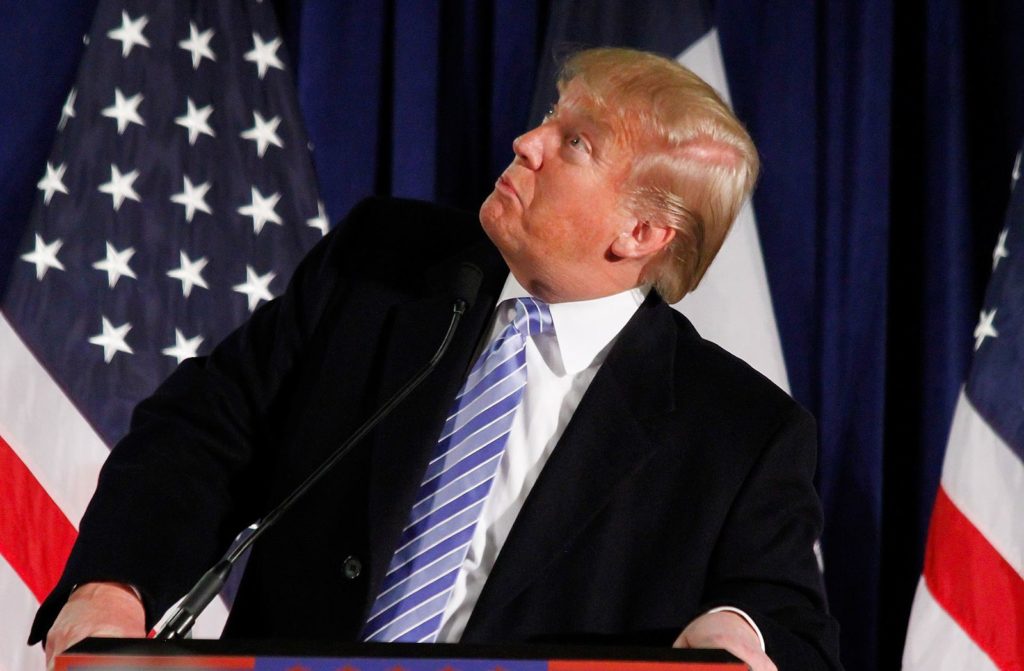Donald Trump fails Flag Day

June 14 is Flag Day, recognizing the adoption of the national flag by the Second Continental Congress in 1777. June 14 is also the day on which the Supreme Court of the United States decided a case about forced salutes, declaring them unconstitutional. We would be wise to review that decision in light of the continued controversy around the NFL.
In 1942, the West Virginia legislature amended statutes to require every school in the state to provide courses in history, civics, and in the Constitution of the United States. By resolution dated January 9, 1942, the West Virginia State Board of Education adopted a resolution that stated:
Therefore, be it RESOLVED, That the West Virginia State Board of Education does hereby recognize and order that the commonly accepted salute to the flag of the United States—the right hand is placed upon the breast and the following pledge repeated in unison…provided, however, that refusal to salute the flag be regarded as an act of insubordination, and shall be dealt with accordingly.
Some modifications apparently were made so that the final salute was a “stiff-arm” salute, with the saluter keep the right hand raised with the palm turned up. Marie and Gathie Barrett, students in West Virginia, were Jehovah’s Witnesses. Their father instructed them not to salute the flag, and like the Gobitis children, were expelled. The Barnetts sued in the United States District Court, asking for an injunction. The three-judge panel agreed. The school district appealed.
In a 6-3 decision, with Justice Robert H. Jackson writing for the majority, the Supreme Court found that compelling school children to salute the flag violates the freedom of speech protected by the First Amendment. West Virginia State Bd. of Educ. v. Barnette, 319 U.S. 624 (1943). Justice Jackson powerfully wrote:
To believe that patriotism will not flourish if patriotic ceremonies are voluntary and spontaneous, instead of a compulsory routine, is to make an unflattering estimate of the appeal of our institutions to free minds…. The test of its substance is the right to differ as to things that touch the heart of the existing order.
If there is any fixed star in our constitutional constellation, it is that no official, high or petty, can prescribe what shall be orthodox in politics, nationalism, religion, or other matters of opinion, or force citizens to confess by word or act their faith therein. If there are any circumstances which permit an exception, they do not now occur to us.
Barnette, 319 U.S at 641-642.
Donald J. Trump praised the NFL recently for doing the “right thing” requiring the players to stand during the National Anthem, declaring, “You have to stand proudly for the National Anthem or you shouldn’t be playing. You shouldn’t be there. Maybe you shouldn’t be in the country.” On Flag Day, we should revisit Barnette.

Daniel is a lawyer writing and teaching about SCOTUS, and is the author of the book “The Chief Justices” about the SCOTUS as seen through the center seat.
